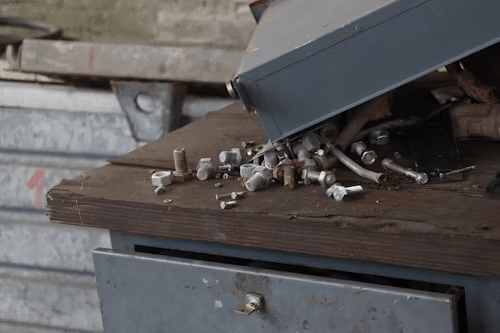If you are involved in construction or a structural project, you have likely heard of anchor bolts. Anchor bolts are an essential component in connecting structural and non-structural elements to concrete. They transfer different types of load, including tension and shear forces, and are used to secure everything from steel plates to stiffeners.
At Fastening Specialists, we understand that selecting the right anchor bolt can be overwhelming. With so many sizes, materials, and designs available, it can be challenging to determine which one is right for your project. That’s why we are here to help. As a trusted wholesale distributor for over 65 years, we are specialists in this field and can provide you with the best in product value, insight, code expertise, and order fulfillment.
Whether you’re a contractor, engineer, or DIY enthusiast, we have the expertise to help you select the right anchor bolt for your project. From J-bolts to expansion bolts, we have a wide range of options to choose from. Our team can provide advice and best use-cases, but always check with local building codes and engineers for correct usage instructions. Trust Fastening Specialists for all your fastening needs.
Understanding Anchor Bolts
Definition and Functions
Anchor bolts are fasteners used to connect structural and non-structural elements to concrete. They are also known as concrete anchors, wedge anchors, or expansion anchors. Anchor bolts are primarily used to secure steel columns, light poles, and other heavy-duty equipment to concrete surfaces.
The primary function of anchor bolts is to provide stability and support to the structure by preventing it from shifting or moving. Anchor bolts transfer different types of load, including tension forces and shear forces. They are designed to withstand various loads and forces, depending on their application and the type of structure they are supporting.
Types of Anchor Bolts
There are many types of anchor bolts, each with its unique application and features. The most common types of anchor bolts include wedge anchors, sleeve anchors, drop-in anchors, and expansion anchors. Wedge anchors are used for heavy-duty applications, while sleeve anchors are used for light to medium-duty applications.
Drop-in anchors are used in hollow concrete structures, while expansion anchors are used in solid concrete structures. Each type of anchor bolt has different installation requirements and load capacities, so it is essential to choose the right type of anchor bolt for your project.
Materials and Composition
Anchor bolts are made from various materials, including carbon steel, stainless steel, and galvanized steel. The material used for the anchor bolt depends on the application and the environment in which it will be used. For example, stainless steel anchor bolts are used in corrosive environments, while galvanized steel anchor bolts are used in outdoor applications.
Anchor bolts are also available in different grades, such as Grade 36, Grade 55, and Grade 105. Each grade has different mechanical and chemical requirements, allowing engineers to choose the appropriate grade based on the specific project requirements.
Fastening Specialists is a trusted wholesale distributor of anchor bolts and other fasteners. With over 65 years of experience in the industry, we are specialists in this field. We offer a wide range of anchor bolts in various sizes, applications, features, designs, materials, coatings, and SKU names. Serving a long list of industries, you can trust Fastening Specialists for the best in product value, insight, code expertise, and order fulfillment.
The team at Fastening Specialists provides advice and best use-cases, but always check with local building codes and engineers for correct usage instructions.
Installation and Application
Pre-Installation Considerations
Before installing anchor bolts, it is important to consider the project requirements and the type of concrete slab or base material being used. You should also ensure that you have the correct equipment and tools for the job.
Installation Techniques
There are several techniques for installing anchor bolts, including hammer-set, adhesive-set, and mechanical-set. The technique used will depend on the application and the load requirements. It is important to follow the manufacturer’s instructions for proper installation.
Common Applications
Anchor bolts are commonly used in both structural and non-structural elements. They are used to secure equipment, structural elements, and non-structural elements to concrete slabs or base materials. Some common applications include securing steel columns, handrails, and machinery.
Fastening Specialists is a trusted wholesale distributor of anchor bolts, with over 65 years of experience in the industry. As specialists in this field, we offer a wide range of anchor bolts in various sizes, applications, features, designs, materials, coatings, and SKU names. Our expertise in code requirements and order fulfillment make us the best option for all your fastening needs.
Remember, the team at Fastening Specialists provides advice and best use-cases, but always check with local building codes and engineers for correct usage instructions.
Anchor Bolt Design and Selection
Sizing and Load Requirements
Anchor bolts come in various sizes and designs, making it essential to choose the right size and type for your project. The size of the anchor bolt is determined by the diameter and length of the bolt and the thickness of the base material. The load capacity of an anchor bolt is determined by the PSI (pounds per square inch) of the concrete and the features of the anchor bolt.
When selecting an anchor bolt, it is essential to consider the load requirements of the project. The load requirements will determine the size and type of anchor bolt required. It is important to choose an anchor bolt that can withstand the load requirements of the project.
Selecting the Right Type for the Job
There are different types of anchor bolts available, including bent-bar anchors and headed anchor bolts. Bent-bar anchors are versatile and are suitable for a wide range of applications. Headed anchor bolts are ideal for heavy-duty applications and provide a more secure connection.
When selecting an anchor bolt, it is important to consider the features of the bolt. Some anchor bolts are designed for specific applications, such as seismic applications or high wind load applications. It is essential to choose the right type of anchor bolt for the job.
Fastening Specialists has been a trusted wholesale distributor for over 65 years. As specialists in this field, we know that choosing the right fastening can be overwhelming. We serve a long list of industries and provide the best in product value, insight, code expertise, and order fulfillment. The expert gives you so much more value.
When it comes to anchor bolt design and selection, Fastening Specialists is the best option for fastenings. We provide advice and best use-cases, but always check with local building codes and engineers for correct usage instructions.
Performance and Testing
Quality Assurance
Anchor bolts are essential components in various construction projects. As such, their quality and performance are critical to the safety and stability of the structures they support. To ensure that anchor bolts meet the required quality standards, they must undergo rigorous testing and inspection.
At Fastening Specialists, we take quality assurance seriously. As a trusted wholesale distributor for over 65 years, we have built a reputation for providing our customers with the best in product value, insight, and code expertise. We work with leading manufacturers to ensure that our anchor bolts meet the highest quality standards and are tested to meet the required specifications.
Field Testing Methods
Field testing is an essential part of the quality assurance process for anchor bolts. It involves testing the anchor bolts under actual field conditions to ensure that they perform as expected. There are several field testing methods used to evaluate the performance of anchor bolts, including pull-out tests and steel failure tests.
Pull-out tests involve attaching a suitable testing rig to the anchor bolt and subjecting it to controlled stress loads to assess the fixing’s strength and security. This method is highly efficient in identifying latent issues, and our experts are equipped to provide technical guidance in interpreting the results.
Steel failure tests, on the other hand, involve subjecting the anchor bolt to loads until the steel fails. This method is useful in determining the ultimate load capacity of the anchor bolt.
At Fastening Specialists, we provide advice and best use-cases for all your fastening needs. With our extensive knowledge and experience in the industry, you can trust us to provide you with the best in product value, insight, and code expertise.
The team at Fastening Specialists provides advice and best use-cases, but always check with local building codes and engineers for correct usage instructions.
Maintenance and Safety
Anchor bolts are a critical component in construction projects, providing stability and strength to structures. Proper maintenance of anchor bolts is essential for ensuring the longevity and structural integrity of the building.
Regular inspection is necessary to detect any signs of wear or damage, which can compromise the safety of the structure. The inspection should include checking the bolts for corrosion, cracks, and deformation. It is recommended that inspections are carried out at least once a year, and after any significant weather events or seismic activity.
Maintenance of anchor bolts involves cleaning, lubricating, and tightening them as necessary. Cleaning removes dirt and debris that can cause corrosion, while lubrication prevents corrosion and wear caused by friction. Tightening ensures that the bolts remain secure and that they do not loosen over time.
It is essential to follow safety measures when working with anchor bolts. This includes wearing personal protective equipment (PPE) such as gloves, safety glasses, and hard hats. It is also important to follow the manufacturer’s instructions when installing anchor bolts to ensure that they are installed correctly and to prevent accidents.
As a trusted wholesale distributor for over 65 years, Fastening Specialists are the experts in this field. We know that fastenings can be overwhelming, with so many sizes, applications, features, designs, materials, coatings, and SKU names. Serving a long list of industries, you can trust THE specialists for the best in product value, insight, code expertise, and order fulfillment.
Remember, the team at Fastening Specialists provides advice and best use-cases, but always check with local building codes and engineers for correct usage instructions.

